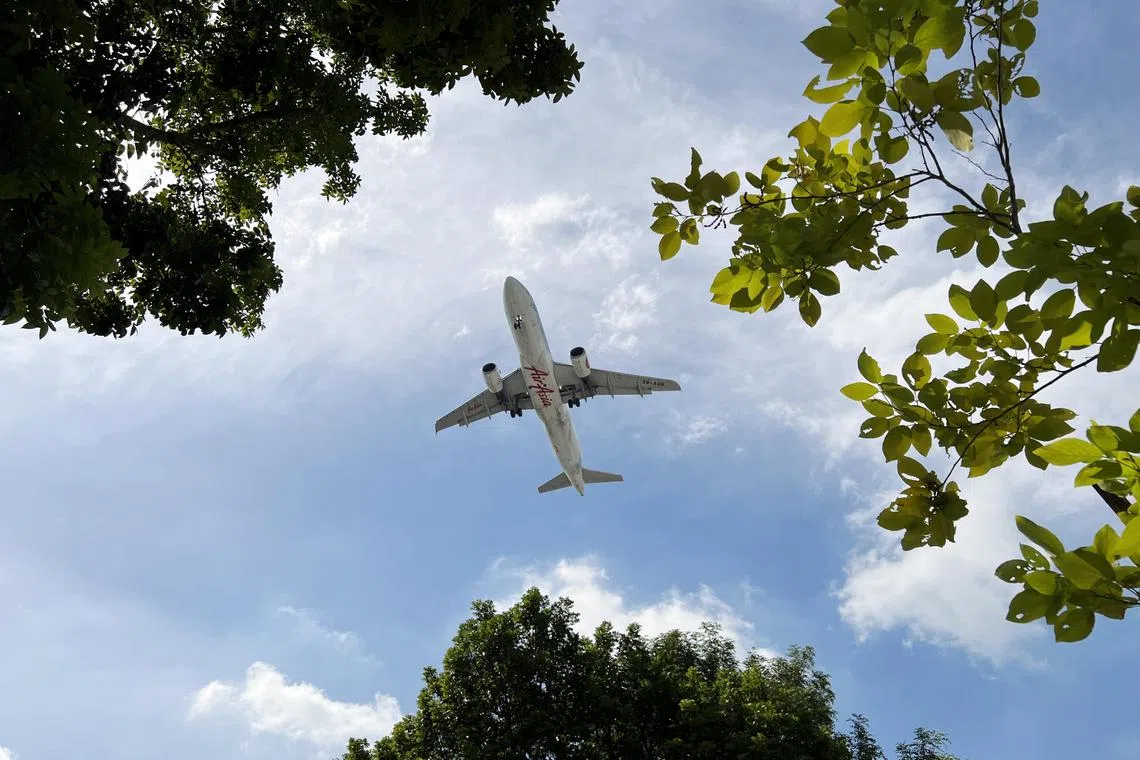Singapore’s transport safety watchdog gets broader scope to look into incidents
Sign up now: Get ST's newsletters delivered to your inbox

A wider range of aviation incidents must now be reported to transport safety investigators here.
PHOTO: ST FILE
Follow topic:
SINGAPORE – A wider range of aviation incidents, such as a shutdown of an aircraft engine in midflight or a loss of communication with air traffic control, must now be reported to transport safety investigators here.
This is in addition to notifying regulator Civil Aviation Authority of Singapore (CAAS), which is already a requirement under current laws. Transport safety investigators now also have new powers to probe railway accidents and safety incidents, as well as incidents involving buses operating under public bus service contracts.
This comes after the Transport Safety Investigations Act kicked in on Jan 1, more than five years after the law was passed by Parliament in August 2018
Under the Act, the Transport Safety Investigation Bureau (TSIB) – a department of the Ministry of Transport (MOT) – has had its scope of maritime investigations expanded as well.
It will now look into incidents involving a wider range of vessels, such as ferries, fishing boats, harbour craft and watercraft used in inland waters like rivers and reservoirs. Previously, the TSIB investigated incidents involving such vessels only on a voluntary basis.
The MOT said the Act was enacted to consolidate and align laws that govern transport safety investigations across the different transport modes. Prior to the Act, the TSIB used provisions from different pieces of legislation.
For example, the bureau drew on the Air Navigation Act to look into aviation incidents and the Merchant Shipping Act for shipping accidents.
Asked why it took more than five years for the Act to kick in, the MOT said this was because subsidiary legislation needed to be developed for the law to take full effect.
For instance, while the main Act has broad definitions of what constitutes a reportable aviation incident, it is in the subsidiary legislation that more specific examples of matters that need to be reported and how to report them are found.
The MOT added that having a single law for transport safety investigations required the standardising of objectives and pre-existing administrative arrangements.
This includes coming up with a common process for the industry to report safety incidents, as well as developing consistency in the way sensitive information is treated. For aviation and marine incidents, these administrative arrangements are based on international best practices.
But for rail accidents and incidents, these arrangements had to be developed from scratch since there are no global standards.
The MOT said it adopted the best practices from foreign rail safety investigation agencies when crafting the subsidiary legislation for rail incidents.
The Act and its subsidiary legislation do not apply to cross-border rail systems, such as the future Johor Bahru-Singapore Rapid Transit System Link.
Asked about this, the MOT said investigation arrangements pertaining to such cross-border rail systems are still being developed and will be provided in due course.
The MOT added that reports of the TSIB’s investigations will be made public on the ministry’s website, so that the safety lessons learnt can be shared.
At the same time, pre-existing protections against the use of aviation investigation reports in legal proceedings have been expanded to cover reports for marine and rail incidents as well. This means TSIB’s investigation reports will not be admissible as evidence in court, except during a coroner’s inquiry.
The MOT said the aim of TSIB’s investigations is to prevent accidents and incidents, and not to ascribe blame or liability.
It added that any investigation by the TSIB under the Act does not prevent other entities, like the police, coroner or regulators such as CAAS, the Maritime and Port Authority of Singapore and the Land Transport Authority, from conducting their own investigations.


